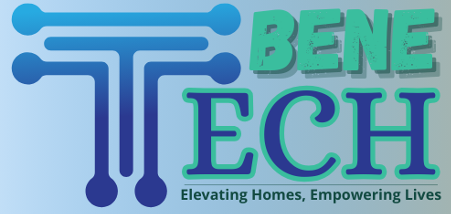A recent study found that mental health app use has skyrocketed by 200% in just two years. This shows how big of a role technology is playing in mental wellness.
In our fast-paced world, mental health tech is changing how we care for our minds. It includes everything from mobile apps to virtual reality. These tools help us take control of our mental health.
Looking for ways to handle stress or anxiety? Mental health tech has many solutions for you. It’s all about finding what works best for you. Start exploring these tools to improve your mental health.
Key Takeaways
- Mental health tech is changing how we care for our minds, offering personalized digital tools and apps.
- Technology is now a big part of our lives, with many tools to help with wellness, like apps and virtual reality.
- Mental health tech makes it easier to get help, offers personalized care, and gives insights to support your wellness journey.
- When picking a mental health app, look at its features, what others say, and how it keeps your info safe.
- The future of mental health tech looks promising, with new trends like virtual reality and a focus on keeping your data private.
What is Mental Health Tech?
Mental health tech includes digital tools to help improve mental well-being. It ranges from wearable devices and mobile apps to AI-powered platforms. In today’s digital world, these tools are key for accessible, affordable, and personalized care.
Definition and Overview
Mental health tech offers a variety of digital solutions to boost mental health. It uses data analytics, AI, and mobile tech for personalized care. Mood-tracking apps and virtual therapy are changing how we manage our mental health.
Importance in Today’s Society
- It meets the growing need for mental health support, with nearly half of adults in the United States needing it but not getting it.
- It fills the gap in traditional services by offering 24/7 access to care.
- It gives personalized insights to help people understand and manage their mental health.
- It makes mental health resources more accessible, overcoming issues like location and scheduling.
Mental health tech is vital in today’s society. It provides accessible, affordable, and quality care as mental health concerns grow.
“Mental health tech is revolutionizing the way we approach personal well-being, offering innovative solutions that empower individuals to take control of their mental health journeys.”
Types of Mental Health Technology
Technology is changing mental health care fast. It includes mobile apps, teletherapy, wearable devices, and virtual reality. These tools help support your mental health journey.
Mobile Apps
There are thousands of mental health apps out there. They offer meditation, mood tracking, and therapy exercises. These apps let you manage your mental health easily.
Teletherapy Platforms
Teletherapy has changed how we get mental health help. It lets you talk to therapists online. This makes it easy to get help without leaving home.
Wearable Devices
Wearable tech does more than track fitness. It monitors sleep, heart rate, and stress. This info helps you make better self-care choices.
Virtual Reality Tools
Virtual reality is changing therapy. It helps people face fears safely. VR is used for anxiety and PTSD treatment.
Technology is making mental health care better. With apps, teletherapy, wearables, and VR, you can manage your mental health better. These tools help you take care of your mind.
| Technology | Key Features | Benefits |
|---|---|---|
| Mobile Apps |
|
|
| Teletherapy Platforms |
|
|
| Wearable Devices |
|
|
| Virtual Reality (VR) Tools |
|
|
The digital mental health market is growing fast. It’s expected to grow 20.6% from 2023 to 2032. Therapy apps and e-therapy solutions are changing mental health care. They offer personalized care and insights to help your well-being.
Benefits of Using Mental Health Tech
Digital mental wellness and AI mental health tech have changed the game. They bring accessible, personalized, and data-driven solutions to mental health. These tools can greatly improve your well-being journey.
Enhanced Accessibility
Mental health tech breaks down barriers like location, scheduling, and stigma. You can now get professional help from home, whenever it’s best for you. This makes therapy more convenient and accessible.
Personalized Approaches
AI and machine learning power mental health tech. They offer personalized insights and recommendations based on your needs. This means you get real-time feedback to help you make better choices for your well-being.
Data-Driven Insights
Mental health tech lets you track your progress and symptoms. It helps you understand your mental health better over time. With these insights, you can manage your well-being more effectively and focus on areas needing improvement.
By using digital mental wellness and AI mental health tech, you can take charge of your mental health. It opens up new ways to a healthier, more fulfilling life.
https://www.youtube.com/watch?v=IRN-QrcCjIM
How to Choose the Right Mental Health App
Choosing the right mental health app can be tough with so many options. Look for key features, read user reviews, and check privacy measures. This will help you find an app that supports your wellness journey.
Key Features to Consider
When picking a mental health app, look for features that meet your needs. You might want guided meditation, fitness plans, nutrition trackers, or AI recommendations. Apps with these tools offer a well-rounded approach to your well-being.
User Reviews and Ratings
Check out user reviews and ratings to learn more about an app. Look for comments on its ease of use, reliability, and benefits. This feedback can help you decide if the app is right for you.
Privacy and Security Measures
Keeping your health data safe is key when using mental health apps. Choose apps that focus on privacy and security. They should use strong encryption and data handling. This keeps your information safe and private.
By focusing on these factors, you can find a therapy app or mental health software that fits your needs. This empowers you to manage your wellness journey effectively.
“The right mental health app can be a game-changer, providing personalized tools and support to improve your overall well-being.” – Dr. Sarah Linden, Clinical Psychologist
The Role of Teletherapy in Mental Health
Teletherapy platforms have changed how we get mental health care. They offer online services, making it easier for people to get help. This technology helps patients and doctors work together, no matter where they are.
Benefits of Remote Therapy
Teletherapy makes it easier to get mental health help. A study in the Journal of Medical Internet Research shows it’s especially helpful for those in rural areas. It also lets people schedule therapy at times that work for them, making it more effective.
It’s also cheaper than going to a therapist’s office. A study by the National Institutes of Health shows it saves money on travel and time. This is especially true during times like the COVID-19 pandemic.
Comparing Teletherapy to Traditional Therapy
Choosing between online and in-person therapy depends on several things. The Pew Research Center points out that not everyone has access to the internet or devices needed for teletherapy.
Mental health expert Nasta says teletherapy helps people in isolated areas get help. It also makes therapy more comfortable and accessible for different people. But, a study in the National Institutes of Health notes some challenges, like not being able to read non-verbal cues.
In the end, the choice between online and in-person therapy depends on what you need. Experts believe teletherapy is here to stay, changing mental health care for the better.
The Future of Mental Health Tech
The need for easy and personal mental health support is growing fast. Mental health tech is changing quickly, with AI chatbots and precision medicine leading the way. These changes offer new ways for people to care for their mental health.
Emerging Trends
AI chatbots, like ElizaChat, are becoming more common. They offer support any time of day. They can sense how you’re feeling and suggest ways to cope.
Genomics and precision medicine are also changing mental health care. They let doctors tailor treatments to fit your genes.
Potential Challenges
- Keeping patient data safe is a big challenge. People need to trust that their personal info is secure.
- It’s important not to rely too much on tech. Human connection is still vital for our mental health.
- Mental health apps need to be tested and proven to work. This ensures users get effective help.
The growth of ai mental health and digital mental wellness is exciting. But we must balance tech with our basic human needs. By tackling these issues, mental health tech can change how we care for our minds.
Impact of Virtual Reality on Mental Health
Virtual Reality (VR) is changing how we treat mental health. It offers new ways to tackle many psychological issues. VR therapy lets people face their fears in a safe space.
VR Therapy for Anxiety and PTSD
VR therapy is making big strides in treating anxiety and PTSD. It uses simulated environments to help people face their fears. This method, called virtual psychology, is great for social anxiety, phobias, and trauma.
User Experiences
People using VR for mental health are seeing great results. They feel better, learn to cope, and feel more in control. Nicole Siegfried, Chief Clinical Officer at Lightfully Behavioral Health, says VR can help with binge-eating by exposing people to triggers safely.
VR also makes mental health care more accessible. It helps reach areas with few mental health professionals. Therapists are using VR, like The Sanctuary, to improve addiction treatment in the Veterans Affairs system.
VR’s effect on mental health is clear. It creates a safe space for facing fears. This leads to better mental health and a better life.
“VR embodiment allows individuals with negative body image to view themselves with different body sizes in a safe environment, promoting increased acceptance of their appearance.”
| VR Application | Impact on Mental Health |
|---|---|
| Exposure Therapy for Phobias | Helps individuals confront and conquer their fears in a controlled environment |
| Pain Management for Burn Victims | Provides imaginal experiences like virtual snow to reduce pain and discomfort |
| Relaxation and Stress Reduction | Immerses users in calming virtual environments to promote stress relief and mental well-being |
Importance of Data Privacy in Mental Health Tech
With more people using ai-powered mental care and mental health software, keeping data private is key. These apps collect personal and medical info to offer tailored care. But, they must protect this data to keep users’ privacy and well-being safe.
Understanding Data Security Concerns
The COVID-19 pandemic has made mental health services more needed. Many turn to mental health apps with AI chatbots for help. Yet, these apps raise big questions about data privacy and security.
These apps collect personal and sensitive mental health info. Each app handles this data differently, affecting how secure it is.
Best Practices for Protecting Your Information
- Use strong, unique passwords and enable two-factor authentication whenever possible to secure your account.
- Review the privacy policies and data handling practices of any mental health apps or platforms before signing up.
- Be cautious about sharing sensitive personal information, and limit data input to only what is necessary for the app’s functionality.
- Stay informed about industry efforts to establish standardized data transparency practices, similar to nutrition labels, for mental health platforms.
Companies like ElizaChat focus on ethical data handling in their ai-powered mental care platforms. They know keeping user trust and privacy is crucial. By focusing on data security, mental health tech can offer valuable support while respecting users’ privacy.
Addressing Stigma Through Technology
Mental health apps and digital wellness platforms are changing how we view mental health. They play a big role in reducing stigma around mental health issues. These tools offer anonymous, accessible, and empowering resources. They encourage more people to seek help and focus on their mental health.
How Apps Can Promote Awareness
Mental health apps like Talkspace, Calm, and Headspace are becoming more popular. This shows a move towards using digital solutions for mental wellness. These apps make it easy for people to find resources, talk to mental health experts, and practice self-care. They help make mental health discussions more common, breaking down stigma.
Success Stories
- Online forums and virtual support groups, such as 7 Cups and Psych Central, have seen a surge in membership. This shows a growing need for online mental health communities.
- The #BellLetsTalk campaign has been a big success. It aims to raise awareness and reduce stigma around mental health. It has raised a lot of money and engaged many people.
- Social media platforms like Instagram, Twitter, and Facebook have more mental health-related content. This shows more people are talking about mental well-being.
These stories show how mental health tech is changing things. It provides easy and supportive resources. These tools help people focus on their mental health without fear of judgment or stigma.

“Technology has been a game-changer in addressing the stigma around mental health. By offering anonymous, affordable, and convenient access to resources, these digital tools are encouraging more people to seek the support they need.”
As more people use mental health tech, the future looks promising. Technology will likely help reduce stigma, raise awareness, and support individuals on their journey to well-being.
Integrating Mental Health Tech into Your Routine
Exploring mental health technology can change your life, helping you control your wellbeing. There are many digital tools, like therapy apps and e-therapy solutions. They help you build good habits and find a balance between tech and real life.
Establishing Healthy Habits
Adding mental health tech to your daily life can lead to positive changes. Try using mood tracking apps regularly, scheduling mindfulness sessions, or wearing devices to remind you of good habits. These can help you take breaks or stay active.
Balancing Tech Use with Real-Life Interactions
It’s key to use mental health tech wisely, not to replace human connections. These tools should boost your wellbeing, not replace face-to-face time or professional help. Make sure to spend time with loved ones and seek help when you need it.
“Integrating mental health technology into your daily life can be a game-changer, but it’s important to strike the right balance between virtual and real-world experiences.”
By carefully adding mental health tech to your life, you can grow and improve your wellbeing. Remember, these tools should support, not replace, the importance of human connections and professional help in your mental health journey.
The Role of Employers in Mental Health Tech
Mental health is a big issue in today’s fast-paced work world. Employers are now focusing on their employees’ well-being. They are adding mental health software and digital mental wellness tools to their benefits. This gives their workers valuable resources.
Offering Tools for Employee Wellness
Top companies are giving their employees access to mental health tech solutions. These include:
- Mobile apps that offer personalized mental health support and strategies
- Teletherapy platforms for remote counseling sessions with licensed therapists
- AI-powered chatbots like ElizaChat for 24/7 emotional support
- Wearable devices to track stress levels
Benefits for Organizations
Investing in digital mental wellness solutions helps employers too. They get:
- Healthier, more productive employees
- Lower healthcare costs for mental health issues
- Better talent retention as employees feel supported
As mental health in the workplace becomes more important, employers using mental health software and digital mental wellness tools will thrive. They will support their workforce and create a strong, resilient team.
Resources for Mental Health Tech Users
The need for mental health support is growing fast. Now, there are many tools for tech-savvy people. You can find mobile apps and online communities that help with your mental health.
Recommended Apps and Platforms
Apps like Calm and Headspace make meditation easy. They help you reduce stress every day. Mood-tracking apps, such as Moodfit and Daylio, let you see your emotions and work on them.
For personal help, try Woebot and Wysa. They use AI to offer support and strategies just for you.
Support Online Communities
Online forums and communities are safe places to talk about mental health. Sites like 7 Cups of Tea and Supportiv connect people. They help you feel understood and not alone.

